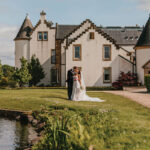Music has a key role to play when you say ‘I do’. Make sure you hit the right notes with our comprehensive guide
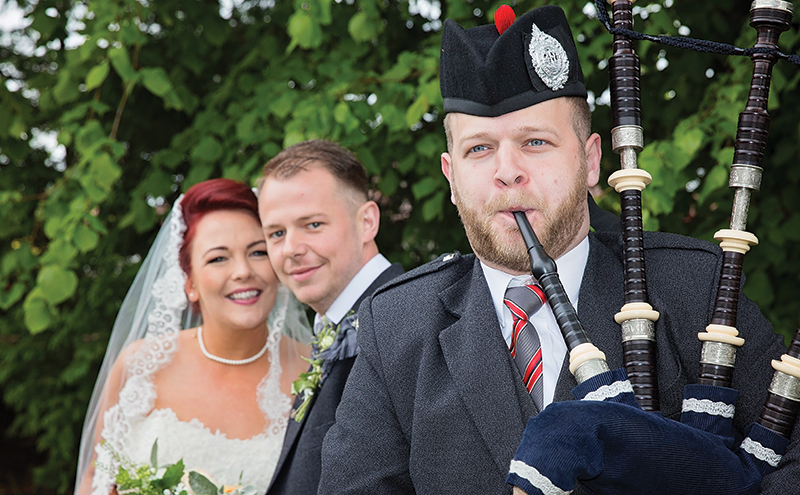
Words by Rosalind Erskine
The ceremony is split into three distinct parts – the entrance of the bride, the signing of the register and the exit of the bridal party. No matter which type of music you choose, you will need to plan for each of these parts, and make it clear to your musicians (or the person in charge of hitting ‘play’) what they are to play and when.
Don’t be afraid to ask for advice when you meet prospective musicians or bands; they can tell you which songs they are capable of playing, and what is usual or traditional. “When it comes to music requests, it is easier to pick a few tunes that you like, rather than a full set list,” says Claire Weir of Reel Time. “Offering a few suggestions gives the musician an insight into your style and taste in music, which they can then build on as they play during the ceremony.”
Traditional Church Ceremony
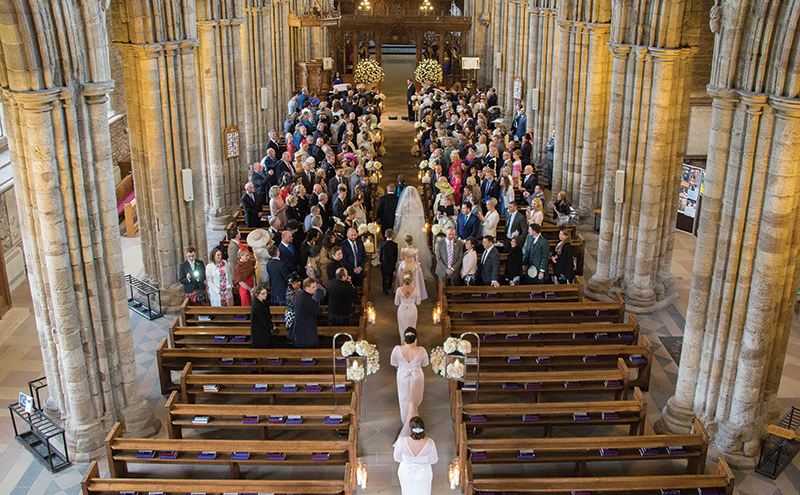

If you have decided on a traditional church ceremony, you have the option of including hymns. Daisy Henderson from Classical Musicians Scotland has a few pointers here: “Not all your guests will know the hymns, so it’s often a good idea to have singers who will make their voices heard. In addition, if it’s a Catholic wedding, there may be responsorial psalms, and the couple need to know whether or not the priest will lead these, or whether the organist or singer will be expected to do so, and they need to be given warning.”
Chloe Mullen of Freak Music suggests asking your church which type of music it prefers. “Some don’t allow secular music to be played at all, or don’t like amplifiers to be used, so it’s always good to check if the ceremony venue has any restrictions.” If you want to add a modern twist to a church ceremony, you could consider a gospel choir – their energy and enthusiasm are always a good reflection of a joyous occasion.
A lot of traditional Scottish weddings will include a piper, who should be able offer a whole range of time-honoured tunes, and be on hand for a number of duties throughout the day. “A piper is a great addition to any wedding,” says Reel Time’s Claire. “He or she will usually play as the guests arrive, for about half an hour, then pipe the bride from the wedding car to the ceremony, as well as playing while guests leave and being available for photographs.”
Humanist Ceremony
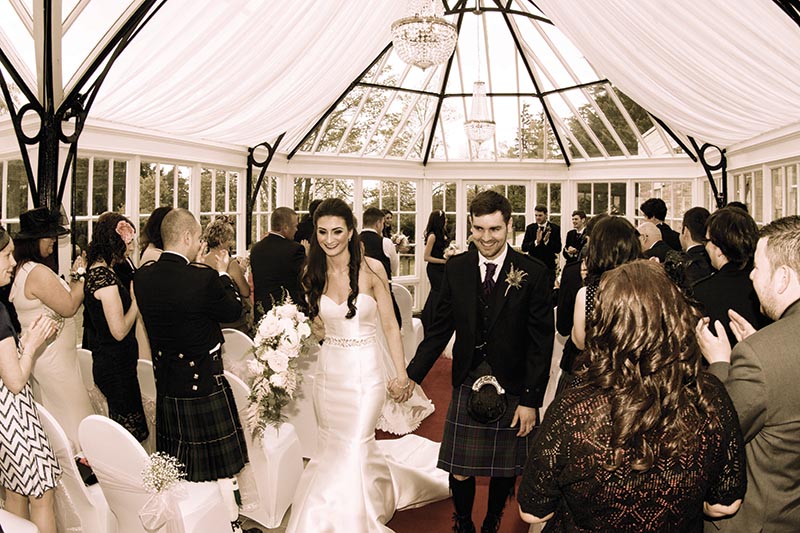

A humanist ceremony generally puts more focus on the couple. It is not religious and can be held anywhere – hotels, private gardens and even your own home. Therefore, when it comes to choosing music for a humanist ceremony, the main thing to consider is the mood that you’d like to create.
As harpist Mary Garrad puts it, “Anything goes! Couples can choose a mixture of traditional, classical or modern music, and, like the ceremony, the music can be unique and very personal.”
The Great Outdoors
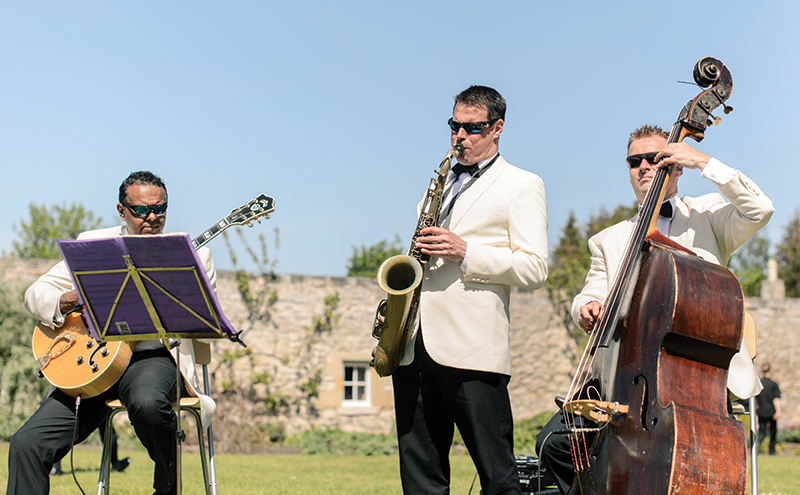

An alfresco wedding has one key requirement when it comes to music: logistics. You can’t exactly haul a piano out into the middle of your oh-so-romantic walled garden, and its portable equivalent, the keyboard, will require access to a power point. If you’ve planned a small, intimate ceremony, though, an acoustic performance would be ideal.
Even here, though, there are considerations, as Daisy Henderson of Classical Musicians Scotland explains: “You may dream of a cellist playing on a beach as the sun goes down (or comes up), but cellists need a solid platform and cover for their instruments. Classically trained musicians will not need mics or backing tracks, though – a bonus if there’s no power point.”
Civil Ceremony
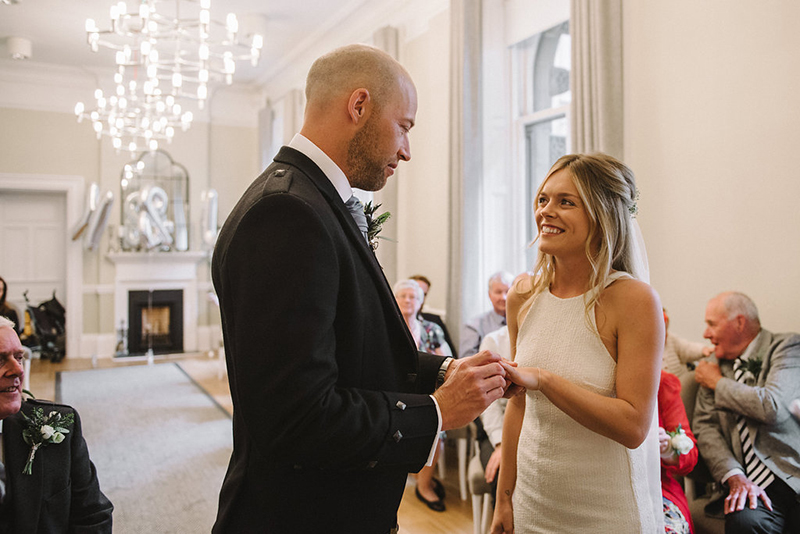

If you’re planning a civil ceremony, non-religious music is essential. As with all other types of ceremony, you need to take into account the size and flexibility of your venue before deciding what to play and who to hire. Find out where the plug sockets are and how many there are. Is there room for a string quartet or would it be a tight squeeze for more than one performer? What are the acoustics like for something loud like a piper? “It’s quite a good idea to share your thoughts with the registrar or celebrant beforehand to get approval or suggestions,” says Mary Garrad.
Traditional Scottish or pop covers are great for civil ceremonies, says Chloe Mullen from Freak Music, who adds: “Guitarists and singers who can perform folk and modern covers are also very popular.”
Just Married!
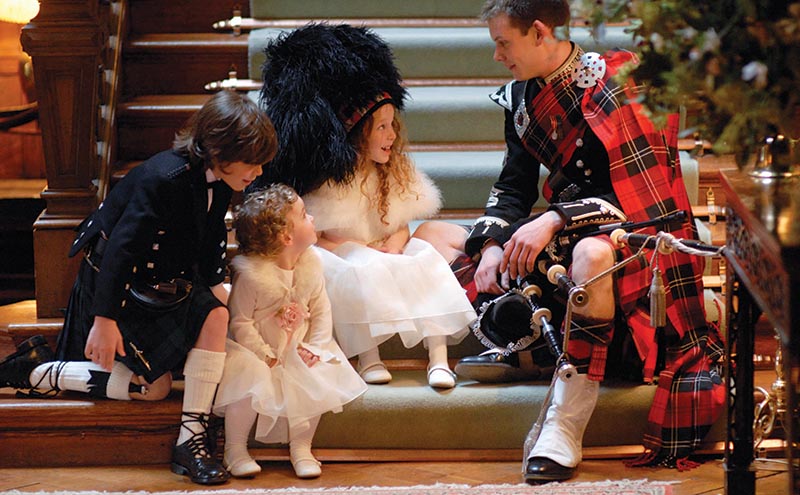

The music that’s playing as you make your grand entrance is important, of course, but so is what comes next – the signing of the register and the recessional (when the bridal party makes its exit). Don’t be afraid to move away from the traditional Wedding March here and go for something classical or personal.
“For the signing of the register, pick something that means a lot to you and your partner, because this is when all the legalities are finished and you can take a deep breath, smile and look around and take everything in,” suggests Annemarie McGahon of Cairn String Quartet. “This is also the only time you’ll hear a song in its entirety during the ceremony, so choose something that will always remind you of your wedding whenever you hear it. You can have anything here, so go wild!’
And for the recessional, she says, “Choose something happy and upbeat. This is a great moment – you’re on your first walk together, taking the first steps of your married life. Have fun and walk with a swagger!”






